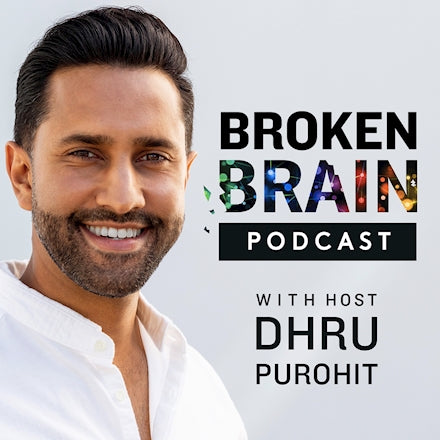The statistics about depression are staggering. If you’re living in a 50-unit apartment building, at least 10 women and more than 5 men probably have depression1. And the alarming fact is that it’s increasing2.
It’s understandable then, that one of the most prescribed drugs in the US is an antidepressant. Called sertraline (trade name: Zoloft), in 2018 it was the 14th overall most commonly prescribed drug, more than insulin, Ambien, or Xanax3. In fact, in 2018, there were 48,999,022 prescriptions for Zoloft4.
While antidepressants can be tremendously helpful for depression, one important side effect can be weight gain, independent of the other causes of weight gain when you’re depressed. Although I’ve even seen some patients lose weight on antidepressants in my own practice, by far, more patients put on weight, and research indicates that being on an antidepressant puts you at an increased risk of weight gain5. Even people of normal weight are at risk of becoming overweight or obese. When you’re on an antidepressant, you’re more likely to gain weight in year 2 or 3 of treatment. And the risks of weight gain increase at least into the sixth year of use.
While the rates of weight gain vary, and are due to multiple factors such as depression and lack of exercise, the sertraline itself can make you gain 10 pounds in a year6, more than twice the weight gain if you are on fluoxetine (Prozac).
The perplexing and different consequence of being on sertraline is that, at least in animal studies7, it is associated with an increase in blockage of your heart’s arteries8. However, it does this without increasing lipid concentrations, either total lipids, high-density lipoprotein, or the ratio between the two. In fact, this risk is close to 5X higher than if animals (monkeys) were not treated.
Also, the results of this study in animals is somewhat perplexing since in this study, it wasn’t even that sertraline caused weight gain (depressed monkeys often have weight loss). The one key metabolic finding was a decrease in adiponectin, which correlated with the arterial blockage. This makes sense because adiponectin usually protects the heart in various ways by dilating blood vessels, preventing tissue destruction by toxic radicals, decreasing inflammation, and preventing cell death9,10.
Given that heart disease is a leading cause of death globally11, it would benefit patients if prescribers emphasized this risk, and also simultaneously prescribed a very different diet. For sertraline (Zoloft) specifically, there are some easy ways you can start to do this:
1. Stop the Western diet habits immediately, but do this reasonably, or you will rebound. There’s no point in feeling less depressed if you’re increasing your chances of heart disease at the same time. And when you’re on a Western diet, drugs like sertraline are more likely to cause weight gain than when you’re not12. In fact, the higher your antidepressant dose, the higher your weight gain, but only if you are on a Western diet.
The Western diet is typically characterized by a high content of proteins (derived from fatty domesticated and processed meats), saturated fats, refined grains, sugar, alcohol, salt, and corn-derived fructose syrup, with an associated reduced consumption of fruits and vegetables.
It’s not helpful to simply present this list to patients, as this often sounds like you are telling them to stop eating everything they like. If they’re depressed, they will not be inclined to do this. article continues after advertisement
I suggest starting with eliminating foods with high-fructose corn syrup: soda, candy, sweetened yogurt, and many salad dressings. Even some low-fat yogurts have too much sugar13 and just one tablespoon of fat-free French dressing has 3 g of sugar14. If you have 3 tablespoons of dressing, you’ve already had a quarter of your daily sugar allowance if you’re a man, and more than 1/3 of your daily allowance if you’re a woman15. Even granola bars16 have too much sugar. And you’d be advised to avoid breakfast cereals like Frosted Flakes, Cocoa Puffs, and Fiber One17.
2. Increase foods that increase adiponectin: A typical Mediterranean diet is associated with higher levels of adiponectin18. Also, foods with a low glycemic index (GI) and high fiber can increase adiponectin.
This can all be mind-boggling to someone who is depressed. The three basic recommendations here are18: Eat foods with omega-3-fatty acids like avocado, nuts, fatty fish and olive oil. This could increase your adiponectin by 14-60%. Diets rich in fiber will increase adiponectin by 115%19. Chia or basil seeds are an amazing source of fiber (they can add this to your gut health, but skip fruited yogurt.). The fiber in chia seeds exceeds dried fruit, cereal, or nuts20. And low glycemic foods include steel-cut oats and butter beans. Use zucchini noodles (zoodles) as a way to get your pasta kick as this is low-calorie, filling, and adds fiber to your meals too.
If you’re wondering how to remember all of this, I have a mnemonic that I use called the “ZOLOFT” diet:
- Z = Zest of lemon (instead of salad dressing)
- O = Olive oil
- L = Legumes (e.g. lentils and chickpeas)
- O = Oats, steel-cut
- F = Fiber
- T = Turkey (or another lean protein, like seafood)
Of course, this doesn’t cover everything but it’s a useful guide and easy to remember if you want to control your weight while on sertraline.




